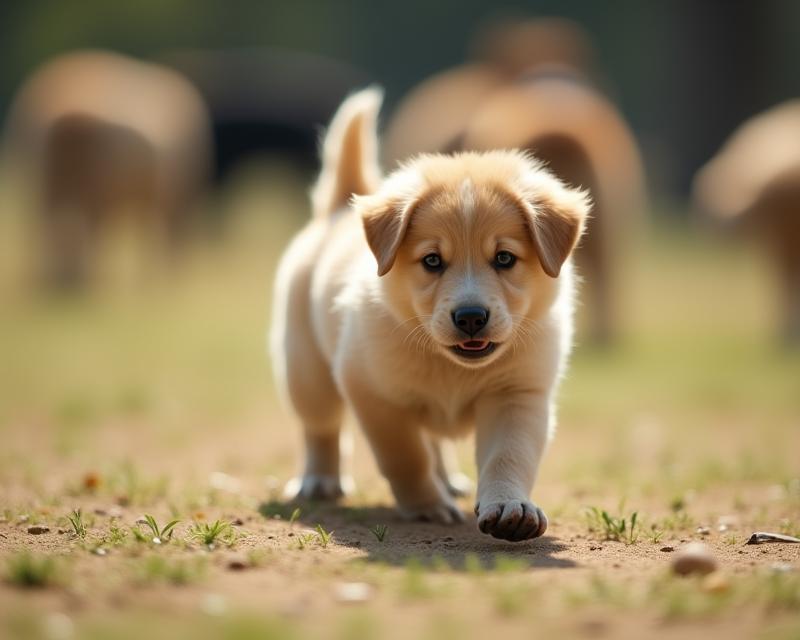Dog Park Woes: Understanding Compulsive Behaviors in Puppies
Publish in Health el 28/06/2025 19:12
Understanding Compulsive Behaviors in Puppy Dogs
It's wonderful to take your new puppy to the dog park! It's a fantastic place for socialization and exercise. However, sometimes playful energy can manifest in ways we don't expect. One thing you might observe is a puppy exhibiting compulsive behaviors, like repetitive circling, chasing their tail, or excessive licking. While seemingly odd, these behaviors can be a sign of underlying stress or anxiety.

What are Compulsive Behaviors?
Compulsive behaviors are repetitive actions that a dog performs seemingly without a clear purpose. They can be triggered by various factors, including boredom, anxiety, frustration, or even learned behaviors. It's important to distinguish between normal puppy play and a true compulsion. Normal play is usually spontaneous and flexible, while compulsive behaviors are often rigid, repetitive, and difficult to interrupt.
Why Do Puppies Exhibit Compulsive Behaviors?
Several reasons could be behind these behaviors. A puppy might be feeling overwhelmed by the stimulation of the dog park – the noise, the other dogs, the unpredictable interactions. They could also be experiencing anxiety related to separation from you, even if you're nearby. Sometimes, compulsive behaviors can stem from a lack of mental stimulation. If a puppy isn't getting enough opportunities to use their brain, they might resort to repetitive actions to cope.
What Can You Do?
If you notice your puppy engaging in compulsive behaviors at the dog park, don't panic! Here are a few things you can try. First, ensure your puppy is getting enough mental and physical exercise at home. Puzzle toys, training sessions, and interactive games can help tire them out mentally. Second, gradually desensitize your puppy to the dog park environment. Start with short visits at less crowded times and reward calm behavior. Third, if the behaviors are severe or persistent, consult with your veterinarian or a certified professional dog trainer. They can help identify the underlying cause and recommend appropriate interventions, which might include behavior modification techniques or, in some cases, medication.
Remember, patience and understanding are key. By paying attention to your puppy's body language and addressing potential stressors, you can help them thrive and enjoy their time at the dog park without resorting to compulsive behaviors. Early intervention is always best!





